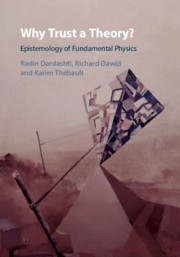Book contents
- Frontmatter
- Dedication
- Contents
- List of Contributors
- Preface
- 1 Introduction
- Part I Historical and Conceptual Background
- Part II Theory Assessment beyond Empirical Confirmation
- 6 The Significance of Non-Empirical Confirmation in Fundamental Physics
- 7 The Dangers of Non-Empirical Confirmation
- 8 No Alternative to Proliferation
- 9 Physics without Experiments?
- 10 Scientific Methodology: A View from Early String Theory
- 11 What Can We Learn from Analogue Experiments?
- 12 Are Black Holes about Information?
- Part III Cosmology and Testability
- Part IV Prospects for Confirmation in String Theory
- Index
11 - What Can We Learn from Analogue Experiments?
from Part II - Theory Assessment beyond Empirical Confirmation
Published online by Cambridge University Press: 06 March 2019
- Frontmatter
- Dedication
- Contents
- List of Contributors
- Preface
- 1 Introduction
- Part I Historical and Conceptual Background
- Part II Theory Assessment beyond Empirical Confirmation
- 6 The Significance of Non-Empirical Confirmation in Fundamental Physics
- 7 The Dangers of Non-Empirical Confirmation
- 8 No Alternative to Proliferation
- 9 Physics without Experiments?
- 10 Scientific Methodology: A View from Early String Theory
- 11 What Can We Learn from Analogue Experiments?
- 12 Are Black Holes about Information?
- Part III Cosmology and Testability
- Part IV Prospects for Confirmation in String Theory
- Index
Summary
- Type
- Chapter
- Information
- Why Trust a Theory?Epistemology of Fundamental Physics, pp. 184 - 201Publisher: Cambridge University PressPrint publication year: 2019
- 2
- Cited by

